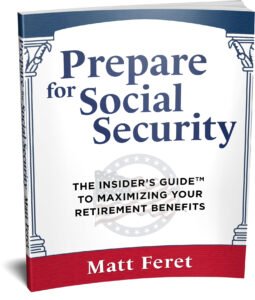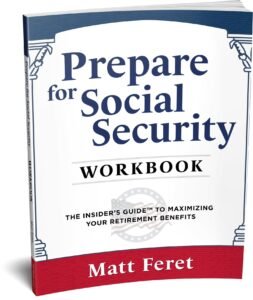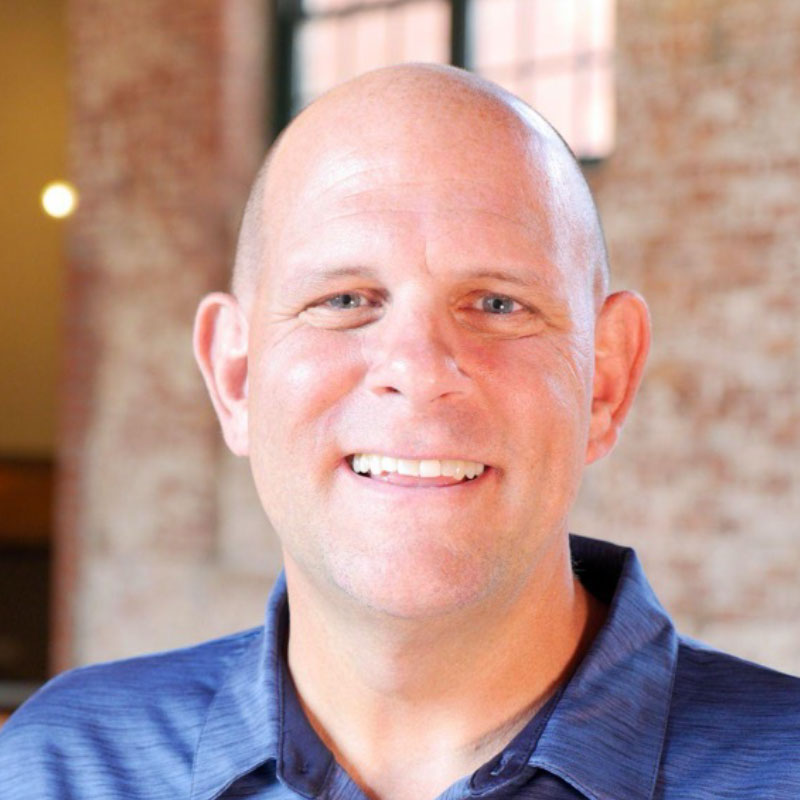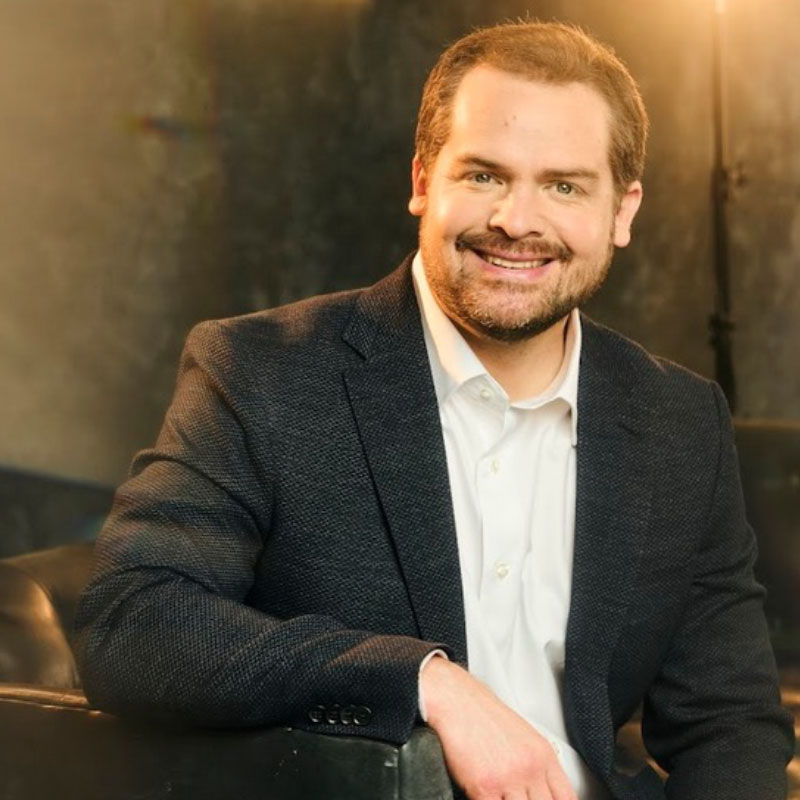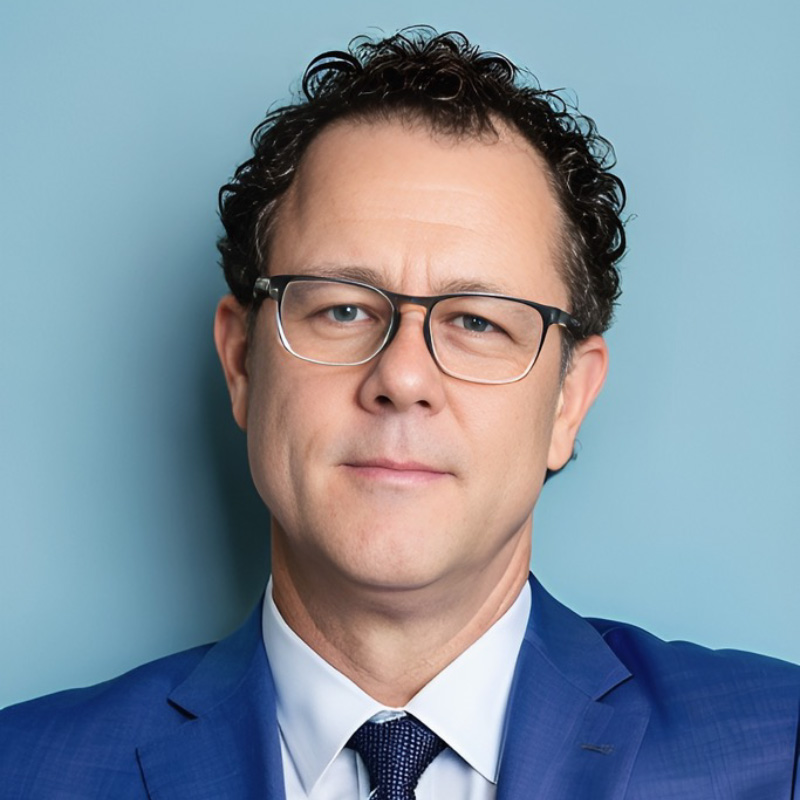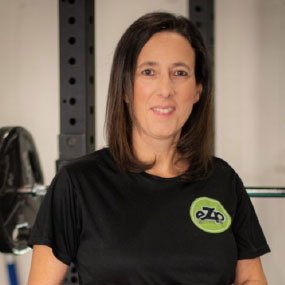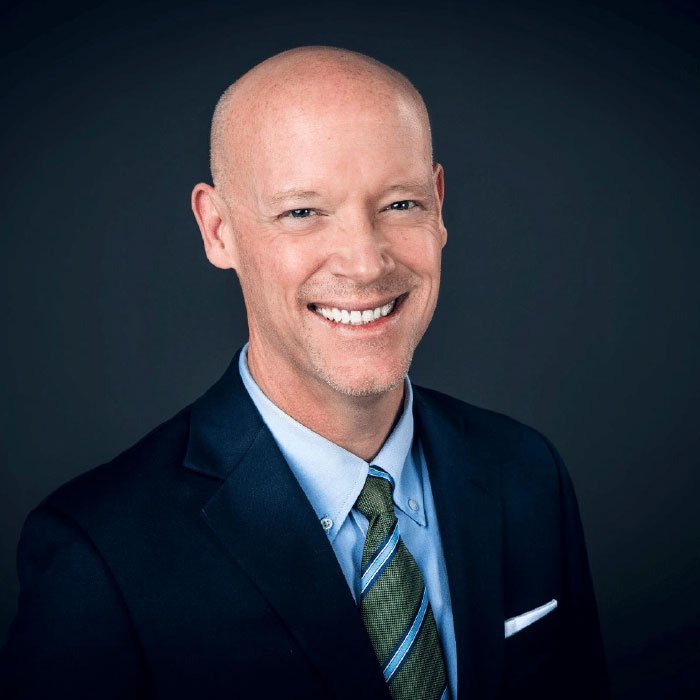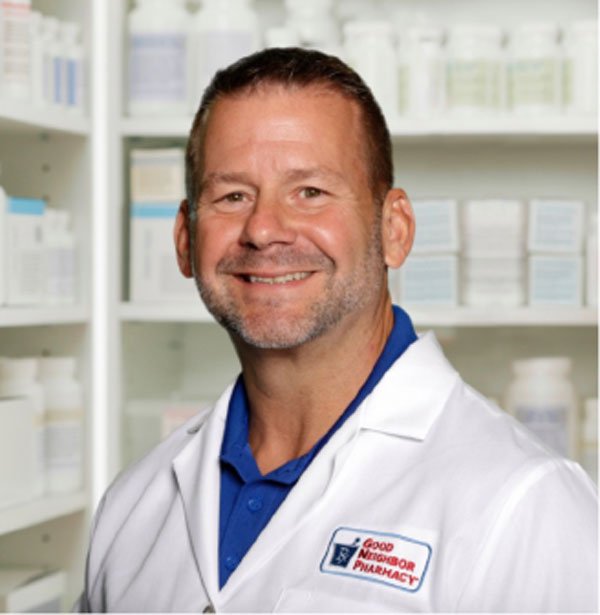#051
Share This:

In this episode, I chat with licensed clinical social worker Iris Waichler. Iris has forty years of experience helping patients and their families navigate the nuance of caregiving and how to address burnout with self-care. She emphasizes the importance of having conversations with loved ones about their wishes and preferences for care, as well as the need for caregivers to take care of themselves and seek support. Iris also provides advice for supporting a spouse or parent who is a caregiver, as well as tips for long-distance caregiving. She highlights the importance of incorporating moments of joy and finding support from healthcare professionals and community resources.
Listen to the episode on Apple Podcasts, Spotify, Deezer, Podcast Addict, Stitcher, Google Podcasts, Amazon Music, Alexa Flash Briefing, iHeart, Acast or on your favorite podcast platform. You can watch the interview on YouTube here.
Brought to you by Prepare for Medicare – The Insider’s Guide book series. Sign up for the Prepare for Medicare Newsletter, an exclusive subscription-only newsletter that delivers the inside scoop to help you stay up-to-date with your Medicare insurance coverage, highlight Medicare news you can use, and reminders for important dates throughout the year. When you sign up, you’ll immediately gain access to seven FREE Medicare checklists.
Quotes:
“It's hard for people to imagine, but I can personally tell you in my role as a caregiver, I had some of the most joyful, intimate, beautiful moments with the people I was helping take care of and made me a better person.”
“Caregiving. It's a scary word, and it doesn't have to be hard all the time. Incorporate moments of joy in your role as a caregiver, and that can help it be so much better.”
“I would say that you need to identify people in the family or people in your life that are going to be members of the caregiving team because you can't do it alone…if the person is still healthy and able to communicate, the person that needs the care, they're a part of the team.”
“You will get so much information, so much support and ideas and tips and resources from other people that have been through it… when you're dealing with this situation, you feel so alone and you're having these extreme feelings and emotions and you say to yourself, is this normal?... And talking to other people that have been through it can be a huge help in terms of understanding what you're feeling is okay.”
“Burnout is a huge problem. So the first thing you have to do is be realistic about what you can and can't do.”
“You need to give yourself a break and you need to incorporate that in your caregiver role, and that could be something as simple as taking a walk or taking a bath and just reading a book, but putting things in place that give you that time off.”
#051
Selected Link from the Episode:
All Things Medicare: prepareformedicare.com
Decoding Social Security: prepareforsocialsecurity.com
My Written Works on Amazon: www.amazon.com/stores/Matt-Feret/author/B09FM3L4WW
The Matt Feret Show's YouTube: www.youtube.com/@themattferetshow
Official Podcast Website: themattferetshow.com
Network with me on LinkedIn: www.linkedin.com/company/prepareformedicare
Catch my tweets on Twitter: twitter.com/feret_matt
See behind the scenes on Instagram: www.instagram.com/matt_feret/
Join our community on Facebook: www.facebook.com/themattferetshow/
Guest’s Links:
Website: https://iwaichlerwpengine.com/
X: https://twitter.com/IrisWaichler
facebook: https://www.facebook.com/RoleReversal1/
Linkedin: http://www.linkedin.com/in/mattferet
Website book links: https://iwaichlerwpengine.com/purchase-books/
Full Show Transcript:
Announcer (00:01):
This episode of The Matt Feret Show is brought to you by the BrickhouseAgency.com. Brickhouse is a boutique independent health insurance agency that focuses on finding the right Medicare coverage for folks across the country. Matt's wife, Niki, is the heart behind Brickhouse. She's great at making confusing things clear and is passionate about helping people find a Medicare insurance policy that suits their individual needs. To schedule a free one-on-one appointment with Niki or a member of her team, head on over to BrickhouseAgency.com or simply call (844-844-6565) and someone will help you schedule a phone call or a Zoom meeting. The consultation is free because the insurance companies pay Brickhouse, not you. There's never any pressure or obligation to enroll. Your clearer, simpler Medicare journey is just a call or click away. Brickhouseagency.com. Not affiliated with or endorsed by the government or federal Medicare program. Contacting Brick House Agency, LLC will direct you to a licensed insurance agent.
Matt Feret (01:09):
Hello everyone. This is Matt Feret, author of Prepare for Medicare and Prepare for Social Security Insider's Guide books, and online course training series. Welcome to another episode of The Matt Feret Show, where I interview insiders and experts to help light a path to successful living in midlife retirement and beyond. Iris, welcome to the show.
Iris Waichler (01:29):
It's great to be here, Matt. Thanks for having me.
Matt Feret (01:32):
Tell everybody what you do, how long you've been doing it, and how you help people.
Iris Waichler (01:36):
I've been a medical social worker for over 40 years now. Started out actually working at a hospital in Chicago that focused on geriatrics and then did a lot of my career on physical medicine and rehab, which basically means I work with people that whose lives were changed in seconds. They had strokes or amputations or head injuries. I worked with burn patients, so I've worked with people that had considerable trauma that affected their lives and their family's lives. Did a lot of counseling with my patients and my families. Did a lot of group work and helping them to adjust, cope, understand and adapt love working with this population, love working with the patients and the families. It's been a real joy for me. And then I expanded the counseling piece that I did and I started writing about aging and caregiving. So all my books, I've written three books, they're all patient advocacy books because I think when you're very ill or your life changes that kind of magnitude, you don't know the questions to ask, you don't know what to do and you're vulnerable.
(02:43):
So what I try to do is give people the information, education resources and tools that they need to try to cope and to try to go step by step and move forward as best they can. And I've written many, many articles on aging caregiving topics and medical topics, mental health topics. I currently work for a company called choosing therapy.com, where we write articles. All the people that write for them are clinicians like me. And in addition, on a personal level, I was a caregiver for my mom and dad, and I also helped two friends who had their chosen families help them to die with dignity. And so we helped them, took care of them and it was an amazing experience for me to be a part of that as well.
Matt Feret (03:32):
That's a wow, 40 years and then writing and helping others, that's an amazing contribution. Tell me, boy, in 40 years you've probably seen it all
Iris Waichler (03:43):
Pretty much. I covered the ER too, so I did see it.
Matt Feret (03:46):
Yeah, you did see it all, especially in a major metropolitan area. I'm sure you saw it all where, tell me about, I mean you've gotten to a point in your life where you're not only helping others from a hands-on standpoint, but you're also trying to disseminate this information and your experience and your observations to the rest of the world via books and articles. But tell me, what was your journey from let's go year one all the way to year 40 plus in terms of your actual caregiving and what you saw. And I know it's hard to summarize it 40 years in a succinct way, but how did you make the transition? What did you see? What were the stories that you had that made you realize there's not enough help or I can help others?
Iris Waichler (04:30):
I'll tell you the story that started me on that path. I was on the rehab unit and I was walking down the hall and there was a family outside the door of one of my patients, the wife and the kids. They were sobbing and I looked inside the room and the only thing that was happening and the patient was perfectly calm. The resident had come in to do an EKG, just a regular update, EKG. I asked the family why they were upset and they thought that he was dying because the resident hadn't taken the 30 seconds it would've taken to explain to them what he was doing and why. And I began to realize just how important it is for people to understand what's happening and to navigate medical and healthcare crises. And so at that moment I decided to write a book and I wrote a book called Patient Power, how to have a say during your Hospital Stay to empower people that were in the hospital and their families, giving them information about what questions to ask, who does what in the hospital, and anything that I thought my patients should know and could help them and their family members get through an incredibly difficult time.
(05:41):
So that was the birth, the birth of all of it really, I love my work and I love working with these folks because they're so eager to get help and to get information and their families are too. And so I just love work because you really do feel like you're making a difference in people's lives.
Matt Feret (06:01):
Where does the responsibility, or even does it lie with the actual hospital or care providers themselves? I've heard, we've heard maybe the world has heard bedside manner. I think that's even a class in med school, is it not?
Iris Waichler (06:19):
It is now. It is a class in med school, and I have to tell you, when I was on that unit, we were a teaching hospital where I worked and the residents had no training in that. I had a patient that died when the resident was in the room and the family was on the way over and the resident was, I caught him leaving the floor because he didn't know what to say to the family or how to deal with it. I literally threw myself between him and the elevator and I said, you were the last person to see their mother. They need to know what she said and you have to be able to talk with them. I told him I would hold his hand and be there with him, but that was a part of his job. And as you pointed out, we've come so much farther than that ethics and bedside manner are required in medical school today and I couldn't be happier about that.
Matt Feret (07:09):
When you mentioned in the beginning around a topic of when someone's life has changed in an instant, when you say stroke or heart attack or a car accident or whatever that may be, how does that differ or does it from, let's start with the family, right, the potential caregiver or how does that change? Is it more shocking if it's instant than if it's a progressive disease that moves over time or is it still the same just in a different timeline?
Iris Waichler (07:39):
That's a really great question, Matt. I would say this in my experience and in my observation, when it happens in an instant, obviously you're not prepared and the shock and the grief is different. The main reaction is, oh my God, this has happened. What's going to happen to my loved one? And then how do we cope? What are the next days going to be like? But when you have a progressive illness, what happens for caregivers and family members is you lose them twice. You knew the person they were and when they have a progressive illness, you see that person changing. So you lose them in that sense. And then of course when they die, you lose them a second time. So I think they are different. I'm really glad you pointed that out.
Matt Feret (08:26):
So in your books and in your experience, let's take the first one, the instant one. If someone has either not gone through this or listened to this and sometime in their life, what would you have the takeaway from a caregiving standpoint or from a family member standpoint, what are some suggestions for someone who is faced with a call and a change in their life? How should we think about this with all the other emotions and everything coming at you at once?
Iris Waichler (08:58):
I would say three things. First, you talk to the doctor, you get as much information, medical information as you can about what your loved one is facing and what they anticipate the road forward would be and what that entails. That's number one. A part of that is educating yourself about whatever the medical problem is. I think that's really important. People don't do that and also they're in shock. The third thing I would say is find out if someone's in the hospital, what person is there like me, a social worker or psychologist or a nurse? Who can you talk to about what you can do to help? What do you need to know and find someone like that that you can talk to? And I would add a fourth. When you're going through something like that, it's so overwhelming. It can be immobilizing terrifying. The thing to do is identify people in your life that can help.
(09:59):
It can be a friend, it can be a family member. It can be your priest or your rabbi, whoever, someone that you can go to talk to candidly about what you're experiencing and what kinds of help that you need. Those four pieces are really, really important. The other thing I would say is if your loved one is experiencing a pretty debilitating medical problem that where it's more long-term care than short-term care, I would say that you need to identify people in the family or people in your life that are going to be members of the caregiving team because you can't do it alone and start right off the bat working with them. 65% of caregivers are women, and women are terrible at taking care of themselves. They're much better at taking care of other people. And women are really not very comfortable saying no when someone they care about asks them to do something. So it's really important from the get-go to know that whatever the situation, you're going to need a break or you're going to need help and to start putting those pieces together.
Matt Feret (11:14):
Thank you for that. And so if you're in a situation where there's a disease diagnosis and maybe it requires hospitalization, maybe it doesn't, I dunno, like a dementia or Parkinson's or MS or something along those lines, and you said kind of two stages, right? The initial or the gradual loss of who they were right in front of your eyes, and then if there's death involved, there's another piece after that. How does an immediate differ from a caregiver standpoint than a more, I guess gradual is the way to say it.
Iris Waichler (11:49):
I would say the is you're concerned about specifics. What kind of help do I need? How do I do this? What additional care is going to be needed? Do we need to bring other people in where you're identifying specific immediate kinds of issues and things that need to be addressed, progressive? And for people that are older, this really happens quite a bit. I took care of my dad and older people tend to get, sometimes a lot of the time they get a diagnosis and then things start to cascade. So in my dad's case, my dad was incredibly healthy. He lived to be 97. But what happened was I was walking with him and I noticed his balance was off and I noticed his memory was a little off. I took him to the doctor, he said he was fine and took him to the doctor.
(12:47):
The doctor was asking him about how he was feeling. My dad said, I feel great. Doctor said, let's check your heart. He took his shirt off and my dad was wearing a watch on his wrist and a watch on his elbow, and I said, why are you wearing two watches? And my dad looked down and said, I've been looking for that watch for three weeks. I'm really glad we came. The doctor, and I knew immediately he needed to go to the er. He went to the er. We had a CAT scan, he had a brain bleed.
Matt Feret (13:16):
Oh
Iris Waichler (13:16):
Wow. They took him to ICU from the CAT scan. He had brain surgery the next day, so that's a real lesson. But then what happened after that was he had atrial fibrillation, so they needed to put a pacemaker in. And because he was in bed for a while, his ambulation got worse. Then he had a swallowing issue. And these sorts of scenarios are not uncommon with people that are older where they discover something and then something else may come along. And so I think that's a different piece of it as well. The age of the patient also can make a different but difference, but that's really an important thing to consider
Matt Feret (13:58):
When you've seen, and again, you've seen it all, like I said, when you've seen caregiving and reactions and families gather or not gather around a loved one or a relative who's done it right and then who's done it wrong, and I mean, you mentioned the word shock. I mean that's the first word that comes to mind. My mind when there's a diagnosis that it's shocking, then you literally go into different stages of shock. So what's the right way if there is one, and what's a wrong way? If there is one,
Iris Waichler (14:33):
There is. Here's the right way. And the biggest mistake that people make, they don't have that conversation with their loved ones while they're healthy and younger. That is the biggest mistake because then all of a sudden when an aging loved one is sick, you may not know what their wishes are. You may not know what they want to do. And that is, I could tell you from personal experience, my mom got sick when she was 55. She had cancer and then it went to her brain. So she couldn't really tell us what she thought. And as the person making those decisions, that is a huge burden. My father and I saw what happened and my dad and I had the conversation shortly after my mom died, and I knew exactly what he wanted and he needed. So having the conversation is really important and making it a collaboration rather than a confrontation.
(15:25):
Because too often what happens is a loved one gets sick or is in an accident or has a terrible health problem and you're in the middle of a crisis and all of a sudden you're there, but you don't know what to do. You don't know what to say. You may not even know who's the person that's supposed to be making the decisions. If people haven't prepared the legal things like a living will or a healthcare proxy saying, this is what I want. So the people that do it right, prepare ahead of time the people that do it wrong. And I can tell you, I work with patients where daughter one was screaming at daughter two, mom can't come home. No, mom must come home must I'm not doing it. And that's not an unusual scenario. I think the, oh, go ahead. I was
Matt Feret (16:12):
Going to say that sounds like a wrong way to do it.
Iris Waichler (16:15):
It was a wrong way to do it because they hadn't had that discussion and also because the daughters had different thoughts about what moms should get. Should mom get a feeding tube? We have to give her a feeding tube. Mom didn't want a feeding tube, but the second daughter said, if she doesn't get it, she's going to die. And so I think it was really important and we were able to work that out. By the way, we sat the daughters down, I brought the doctor in and mom was a part of it, and once they both heard what mom's wishes were, it went a lot smoother. So having those conversations is super important. I would say the other thing is usually there's more than one family member. The people that do it right, talk to family members, siblings or whoever else might be involved, and you identify who has what skills.
(17:09):
For example, who's the person that's going to be talking to the doctor, who's the person that's going to be making decisions. Maybe there's someone in the family who's not physically close, but they know a lot about insurance claims and bills. That person can be there for that. In my situation, when my dad was ill, my sister lives in London, so she wasn't able to be here physically all the time, but she had some financial resources. She said, I want to help. So we knew that we could use some of that to help get caregivers to help with my dad. So identifying who's got what skill sets, who's available, and putting something in place again if possible ahead of time. So you build a caregiving team or build a caregiving network and you have to be flexible about it too. When situations change, it's not carved in stone.
(18:02):
You have to be willing to make changes as needed. And you most importantly, if the person is still healthy and able to communicate, the person that needs the care, they're a part of the team. They're there to say, so when you say to your mom or dad, I really love you. I want you to live longest, healthiest life you can, I'd like to talk to you about how we can make that happen and what your wishes are. So mom, do you see yourself staying at home even if you need help or would you be okay moving to an extended care facility and going over those kinds of questions? It can open so many doors.
Matt Feret (18:38):
You mentioned an interesting piece in there is the family, right? We tend to think of a caregiver as one person and oftentimes it is, but when let's say you have two or three other siblings, doesn't it normally end up falling on one of the siblings or have you seen it move around or what's the family dynamic that you've seen that even if they have healthcare, power of attorney, regular power of attorney, right? There's a living will. Doesn't most of the burden end up falling on one person? Typically geographically close
Iris Waichler (19:13):
It can and many times it does. But if you're the sole caregiver, physically close, and the world we live in now, families are across the country. It's often not somebody right next door, very physically close. There are things that you can do to get help recruit friends, like in my case, when my two friends died, group of friends got together and we became the caregivers. They didn't have a brother or sister close by, and so we took that on. You can get help. There's a website called aging life care.org, which is a wonderful website where you can find a geriatric care manager, which is basically someone like me, a social worker or a nurse. They can come in, they're local, they can do an assessment, see what's needed. They would talk to the person, the family member that is close, how are you doing? What kind of help do you need?
(20:12):
And they can actually hook them up with local resources and support and help. So there are places you can go to get additional help, even if it feels like you're the only caregiver. Also, if you're a veteran, there's opportunities available for support financially and otherwise there. Some people may be eligible for Medicare or Medicaid, so you have to kind of figure it out. My dad's case, my dad was a vet and I was going through his desk drawer one day helping him with something, and I noticed a card buried in the back of the desk. It was a veteran's car and it got a 60% off the cost of his medications. I said, how long have you had this card? He said, what card?
Matt Feret (20:55):
What card?
Iris Waichler (20:56):
So it's really important to kind of figure out exactly, get everything you need, everything you can possibly need to help. And it involves doing some digging as I dug through his drawer, but it's important. And there are social workers at hospitals and people at hospitals or people like the geriatric care managers that can help.
Matt Feret (21:16):
How much of, I've not gone through this. I know people that have, I've interviewed people that are currently doing it. There seems to me though, from my background in insurance and Medicare then people I've talked to is that post discharge, when a caregiving is needed, it is this mishmash of, well, you're kind of on your own. You can go to that website, you can call that person, but you guys got to figure it out. It seems like there's a pretty stark gap in between acute care or even skilled nursing facilities or any type of that in-home kind of transition. And then once things return to the new normal, I guess it seems like you're kind of on your own. Is that accurate or do you think there's enough resources out there that it isn't? You got to spend 15 hours online poking around and listening to this podcast, and by the way, I'll have that link up on the show page. Where are the big gaps here that people may run into that you don't even know about until you're going through 'em?
Iris Waichler (22:24):
I would say what you said is partly true. I would say it depends what hospital or program you're associated with when you're getting the medical care. Some places have social workers. When I was there, every single patient and every family member I talked with and I gave them a list of places they could go and I also was available after that person went home, they could contact me for help or questions. It's not like that everywhere. That's the ideal. It's a spectrum. Also, it depends on if you're in a rural area or if you're in an area where it's a bigger city where there are more sources available. There are local places. Lots of places have an area on aging office. That's a really great resource to go to find out. And the beauty of the internet is there are chat rooms and there are resources available for everybody in anybody, and I would strongly recommend that people look into that.
(23:21):
If your loved one has cancer, you can go to the American Cancer Society site. If a loved one has Alzheimer's disease, the Alzheimer's Association is a great place to go and you can actually, on many of those sites, you can put in a zip code and they will tell you what's available In terms of local services or local programming, you can always go back to the doctor and say, because the doctors often know about they've been doing it for a long time, patients have universal issues they're dealing with and the doctors may recommend something in-home health programs are pretty present in a lot of places. So can, I would say to people too, if you're nervous or anxious, you can even say to the doctor, could we put some in-home health in place just to kind of smooth with the transition? That might mean a nurse coming to visit, that might mean an aide coming who can help with bathing or dressing. That might mean a physical therapist to come to your home and take a look at those stairs to see if someone can climb them or not, or an occupational therapist to come in and teach you some ways to dress. So there are some things available. I encourage people to ask questions and ask for help while they're still in that place where they're transitioning and not to be afraid to ask questions after the transition.
Matt Feret (24:39):
What about the financial gaps when you're in the hospital, if you have insurance, especially if you're on Medicare, right? They've got a certain amount of time or a certain amount of treatment. It may be some in-home care, but when you're in a long-term caregiving situation, not only are these bills and pieces of paper, you've got to match together coming in, but then regular health insurance, if you will, doesn't cover someone who needs caregiving for two or three or five or even 10 years. And you mentioned your sister in London and she said, I have some financial resources to assist with these things. What are the unanticipated, besides long-term care, right? Long-term care is an insurance product that not many people buy because it's extremely expensive. What are the unexpected financial gaps in a caregiver situation that people have to anticipate as well?
Iris Waichler (25:35):
Yeah, that's a great question. The normal right now, the average time for caregiving is around four years for people, just so you know that. And I think that's the biggest gap and the biggest problem is what you're describing, that financial piece, because the spectrum is so wide, if people that do have the financial resources, more options are certainly available. I think what people need to do is really, again, before someone is sick, understand what their insurance covers and what it doesn't cover. Medicare can help a lot, but it does not cover that long-term situation. You're talking about Medicaid. There are Medicaid approved programs and Medicaid places, but you have to be financially eligible for that Medicaid, and many people fall in that middle gigantic hole where they're not eligible for Medicare and they're not eligible for Medicaid. So there are some local programs that people can come in and help that don't cost as much money, but this is a situation where you really have to explore what programs are in your immediate area and try to figure out how to fill in the gaps.
(26:46):
A lot of places, for example, have adult day programs that don't cost anything and they even provide transportation, and it's a wonderful way to get someone a loved one out and socializing with people and getting them to stimulate their brain and to just feel good about being out. So it is a question of looking into what's available in your area. Again, the geriatric care manager I described can help with that. Dr. May be able to help with that, but the other thing I would encourage people to do is go into chat rooms. You can go in a chat room and a local chat room. For me, I could go in a chat room in Chicago and let's say the person I was taking care of has Alzheimer's disease. I can go in there and say, I don't know where to begin. What experience do you all have with that?
(27:36):
You will get so much information, so much support and ideas and tips and resources from other people that have been through it. The other piece of that that's really wonderful is when you're dealing with this situation, you feel so alone and you're having these extreme feelings and emotions and you say to yourself, is this normal? Am I not handling this properly? And talking to other people that have been through it can be a huge help in terms of understanding what you're feeling is okay, and those moments when you do feel overwhelmed, it's really great to have other people that have been through it to go to.
Matt Feret (28:15):
Yeah. Let's pivot to that. Let's talk about the actual caretakers themselves. We've spent, and you mentioned it, but let's pivot to that right now and about taking, if you find yourself in a situation where you're taking care of a loved one, you said four years is the average, which sometime it's 10, sometimes it's one, but that's right, 10 is a lot different than one potentially. That doesn't mean that everything's four or five or three. I mean, I have to think the number of impacts to the caregivers themselves, financially, emotionally, their relationships with their spouses or their other family members. This is really a big change in life for the primary caregiver of a loved one. I have to assume that because I thank God haven't had to do that yet. So tell me about when you're put in a position of being a caregiver.
Iris Waichler (29:15):
Huge change and really tough to prepare for because obviously you don't know what you're going to be dealing with, so how do you prepare for something when you're not certain about it? Many people say, oh, I can do this thinking it's going to last a month or two months, and then those unknowns happen. The biggest number one problem I think for caregivers is burnout. They're doing all the things you mentioned. They may be a wife, they may be a mother, they may have a job, they have friends and all of that. They're juggling all of that at one time, and I don't care who you are, it's really tough to figure out that balance and that takes some time. And so burnout is a huge problem. So the first thing you have to do is be realistic about what you can and can't do. The second thing is pay attention to your body caregivers physically.
(30:09):
What'll happen is the emotional stuff and the physical stuff sort of seeps in and we don't really focus on it because we're so busy being caregivers. So I would say you pay attention to your body if you start having headaches, if your gut starts acting up, if you have muscle tension, I can remember laying in my bed looking at the ceiling, not being able to sleep in my dad's case because the calls the emergency calls in around midnight or one in the morning, so I wasn't sleeping because I was waiting for that call. The other thing to pay attention to is emotionally for caregiving. A lot of people, it's a really emotionally difficult journey. You get depressed, you get sad, you feel helpless and you feel hopeless. So that's another piece to pay attention to. What's your emotional state of mind and how are you nourishing your spirit and your body and your soul as you're being a caregiver too?
(31:07):
Also, I tell people to look for personality and behavioral changes. When you start getting more irritable, when you're taking care of somebody and you just have it and you start yelling at them or your frustration tolerance, it goes way less where the little things set you off. Those are all red light, red light kinds of situations where you have to recognize that that balance is not there if you have a job. I would say I tell people to consult their supervisors or places at work about this is the situation I'm in. Is there any kind of flexibility right now for me? What can we do? Also, there's a wonderful thing called the Family Medical Leave Act, which does give caregivers and people who are needing to be there for their families a break where they can actually focus more on the caregiving and not lose their job.
(32:02):
They may be allowed to come back, they may not have the identical job that they had, but they can't be fired for spending that time being a caregiver. The other thing I would say is you have to incorporate respite care in the whole caregiver mode. When you're balancing and doing all of those things, you need to give yourself a break and you need to incorporate that in your caregiver role, and that could be something as simple as taking a walk or taking a bath and just reading a book, but putting things in place that give you that time off. Maybe asking somebody, a friend, a neighbor, a relative, just to come in and stay with the person you're taking care of and you go out and have a lovely dinner and with someone that can give you some comfort and some support. It's really important to be aware of all that because you're right, it's so hard to juggle all of that, and especially when there are a lot of unknowns and you don't know what to expect.
Matt Feret (33:03):
Do you recommend keeping your primary care physician maybe going to seek out some counseling on your own? For the mental side of it, the physical side, do you need to tell your PCP? Look, if my blood pressure is spiking, what do I need to pay attention to? What do I need tests? Do I need to run? Because you just outlined physical and mental big changes just from caregiving.
Iris Waichler (33:30):
Absolutely. You need to, if you find that the red light items that I highlighted continue or get worse and you feel more overwhelmed and more immobilized and more frustrated where you don't know how you're going to face the next day, how are you going to get out of bed? Counseling is a really important option, and I would say you see a therapist or a counselor if you can, that has expertise. For example, if your loved one is dying, someone that has experience with death and dying or grief and loss, because they will give you the skills and the coping mechanisms that you need to help understand what's going on inside of your head, your body and your heart, your soul, and they'll give you the support that you need to figure out what you need to do and how you need to cope.
Matt Feret (34:24):
What about if you've got a spouse? Let's stay on the female topic, right? Because you said the majority of caregivers skew female, and let's say you're married to a male and he is either working or retired or somewhere in between. If you are a spouse of a caregiver, how should I support my spouse? How should I help? What should I be attuned to? How can I help a primary caregiver that I'm married to?
Iris Waichler (34:56):
There's a myriad of things you can do. Everyone has different boundaries and lines in their household about who does what. And so I would say if the caregiver's, normally the person that does the grocery shopping and does the laundry and walks the dog or takes the kids to school, for example, those are things that can be enormously helpful if your spouse can take some of those things off your plate. It's such a huge lift and it's so important. So I would say to have that conversation with your spouse or your partner to say, what can I do? And to come up with ideas to enter that conversation with thoughts about it. I'll grab dinner tonight. Let's have takeout. You don't have to cook and spark some ideas about how to take some of that pressure off.
Matt Feret (35:46):
Thank you. And what about if you've got kids in the house? I mean, so seventies, eighties, and nineties, we all think about as eating caregiving, but there are a lot of people in their sixties, fifties, and forties, and if it's a son or a daughter taken care of, a lot of times there are kids in the house, and I tell you from firsthand experience having three kids in late middle school or middle high school and throwing that on top of it is going to do more than just for the caregiver and the spouse. It's going to really impact the family life. Any thoughts around how to handle that or conversations to have or counseling or what have you?
Iris Waichler (36:23):
Yeah, when I was growing up, all three of my grandparents lived in our house. We always had, my uncle lived with us. We always had someone living in our house that needed help. So I kind of grew up with that and I think my parents modeled caregiving without me knowing it starting when I was five years
Matt Feret (36:39):
Old. Yeah, that's quite an intro to your chosen career for sure.
Iris Waichler (36:44):
Yeah, see through my pores. So in terms of the kids, an interesting thing happened during the pandemic because people from the outside weren't able to come in. The younger kids, the teenagers, they picked up some of the slack and they began to assume a greater caregiving role. And I think it's really important to model things for your kids. It's really important to open the door to have conversations because it's really painful and hard to see someone you love in pain or physically changing, or if you have a dementia or an Alzheimer's situation, they can be become more aggressive and verbally abusive. That's what happened. My grandmother had cancer and I remember her screaming and yelling at my mother as my mother was taking care of her, and it was really confusing for me at the time, why would she yell at my mom? My mom was trying to help her.
(37:43):
And so it's really important to have those conversations and as much as possible to encourage that cross-generational contact and interactions because kids can make older people feel really great and older people can make kids feel really great. Here in the us we're not so wonderful about those intergenerational relationships or settings. Japan is stellar at it. Households, that's the norm. The other is the exception. So I think it's really important to encourage that where I live on my block alone and five of the homes on my side of the street, the grandmother lived there with her son or her daughter, and then their kids were there and it created some really wonderful dynamics and it can open some really beautiful doors, but you do have to check on your kids and see what their state of mind is. They may have questions, they may have concerns, they may be confused. They may be upset too if they see a loved one deteriorating and getting ill. And then of course, if it looks like the person that's needing the care is going to die, you have to do some preparation for that to talk to them about that, and counseling may indeed be important aspect of that.
Matt Feret (39:03):
A slight twist on what we've been talking about, still caregiving. If you've got older parents and you live away from them, like you said, I mean people are scattered, my siblings are scattered throughout the country. I know a lot of my friends have all moved away and moved and started their own lives elsewhere, but when you've got a situation where one of your parents is on the decline and it sounds like or feels like or is currently that the other parent is now assuming the role of the caregiver and you're far away, how should you interact with your parent? I mean, I guess I can say I can relate to this. So my grandfather declined with Parkinson's over time, probably a 10 or 15 year period, and then my grandmother was in the house. And so grandma's last 10 years with grandpa were really more of a caregiver piece, and you could see the dynamic really did change there. And when we'd go for Thanksgiving, when I was a kid, everything was normal. Then you'd make the trip to go to Thanksgiving when you're an adult, it's not the same grandma and grandpa anymore because the dynamic had changed. How do I help my parents if I see one of them assuming this role or I'm in this role of caregiver and is there anything that I can do or how can I help one of my parents through the situation, long distance, anything?
Iris Waichler (40:34):
Yeah, a couple things come to mind. That's a really great question. It happens for so many people now with those distances. One thing is we can use technology. Sometimes it's evil, but sometimes it's good and a lot of people set up, there's all kinds of programs now where you can technologically be there for your loved ones. You can have cameras in different places in the house. You can even see where grandma is in the kitchen and then she gets up to go to the bathroom. And also just having FaceTime with both of them and being supportive in those kinds of ways is hugely important too, because by observationally talking with them and seeing them, you can see changes in personality, in hygiene, in how they interact. That's really important. I would say too. The other thing is to recruit somebody locally, someone that they may have been living next to a neighbor 40 years, I'm guessing if they have a good relationship, you could say to the neighbor, can you check on grandma and grandpa a couple times a week or three times a week or whatever, and you can have a visual report from the person that's there.
(41:47):
You can do the geriatric care manager thing that I described. You can set up any kind of program you want with them. You can ask them to come in once a week and report to you. They could come in once a month. There's all kinds of possibilities in that sense. And also, I would certainly plan periodically to come in and have a physical visit because the thing about people that, particularly people that have dementia or some kinds of disability, they aren't always accurate reporters of their own condition. And it's not because they're lying. Sometimes it's because they genuinely don't see it. And so you need someone with a clear head and a clear eye that can give you accurate information about what's going on. You don't want to wait until it's too late to get somebody in there and get the help you need. My in-law's situation, my father-in-Law, they'd been married 65 years, and my father-in-Law was starting to decline in health, and they were living in a really large house, and my mother-in-Law decided it was smart for them to move right a couple blocks away. There was a wonderful assisted living program. They had their own apartment, but there was a nurse there 24 hours. There were people they could call immediately, and they were able to bring in help as his health declined. She was so happy she was there when he did die. She had neighbors and people that she knew she was in a place that she felt comfortable. She continues to tell me how grateful she was that they did what they did when they did.
Matt Feret (43:19):
Yeah. How do you handle that with loved ones that maybe cognitive decline or just physical decline? We talk about retirement homes. They're built without stairs. They've got different levels of just adjustments for older adults. What if you've got somebody who's staunchly independent and Doesn doesn't want to do any of that stuff, doesn't want to hang out with the old fogies even though they themselves are the same age or even older. Is that something from a family standpoint? How would you approach that? I mean, obviously you're not going to do anything without them involved, but how do you approach that type of situation where it's like, well, dad, you're 82 and you're doing well, but there's a little something here and a little something there, and have you ever thought about this without getting your head snapped off
Iris Waichler (44:11):
And your head will get snapped off? My dad was 85 and climbing on a ladder to clean the gutters of the house, our childhood home. I would say this. I would say that if you do have concerns, you have to come about it in a particular way. You can't come about it aggressively and angrily and say, this is insane. You need help. We are going to do something right now. You make it a collaboration. So you say, and again, it's a process. You open that door. Remember when we were talking earlier, and I mentioned the caregiver conversation, you start that early. The door is opened a bit, so you can reference that. You can say, dad, when I was talking with you about getting help and working with you and making your life as safe and live as long as possible, you told me that you wanted this to happen so they feel that they're a part of it, that you're not imposing your judgment, your beliefs on them.
(45:09):
That certainly helps in the conversation. That certainly can help with the outcome. No denying. There are some people, no matter what you say or do, they're going to want to do things their own way and you can only do so much, but you want to encourage them as much as possible to say, I want you to be safe. I want you to be healthy. Can we try this? And maybe nudge something in there a little something where someone comes in once a week just to bring in their groceries or whatever and see if they're on board, on board with something like that. Or you give them options. You say, I can have someone deliver your groceries. I could have someone do the laundry. What's the thing right now that might be toughest for you or that you hate the most? And just sort of try to get things in that way. Not high pressure, but collaboratively, and what can we do to help you? And if they say, I'm doing everything great, there's not much you can do,
Matt Feret (46:12):
Go pound sand, I'm fine. But one
Iris Waichler (46:13):
Thing you can do, parents and family members react differently to us than they do to their doctor. You can recruit a doctor. You can ask the doctor to say to them, you know what? I'm really concerned about your ability to drive right now. It's not safe for the following reasons. Your peripheral vision's not good. Your reaction time isn't good. So it doesn't have to always come from you. It can come from someone. Or if they've been going to the same church for 30 years and their priest is a beloved figure in their lives, recruit the priest, identify people, maybe not family that they might listen to more than they'd listen to you.
Matt Feret (46:52):
That's really good. This has all been really good practical advice. Thank you so much for doing it. What, I could do this for two, three hours, and I'm sure you could too, because I felt like I've only just barely scratched the surface of your experience and your knowledge. So maybe we'll do this again sometime. But in the meantime, what questions did I not ask that I should have?
Iris Waichler (47:13):
I think you covered a lot of bases. You did a great job of asking the, I said, well, thanks. The key questions that need to be covered in the timeframe that we have, the question I would raise is in each individual needs to search their own heart about this. Helping people to get to a place where they can say, I can only do this much, not feel guilty about it. And to help people figure out how to realistically examine what the role is as a caregiver and help them to be able to ask for help. Those are the most important aspects that will help you to continue to be a good caregiver. The other thing I would say that you didn't touch on, but I think it's really important, caregiving. It's a scary word, and it doesn't have to be hard all the time. Incorporate moments of joy in your role as a caregiver, and that can help it be so much better. So for example, if you have the loved one, you're taking care of love Sinatra, put a Sinatra tune on, and if they can dance, get up and dance with them and create some wonderful memories and wonderful moments As much as you can figure out how to incorporate joy. If they love the outside and there's a beautiful garden where they are, take them out to the garden. Or if they can walk, take a walk. If you can figure out ways to do that, that's really important too.
Matt Feret (48:39):
That was beautiful, and you're right, I didn't touch on that, but there are definitely, it's not all a burden, right? There has to be moments have to be moments of beauty and joy and serenity
Iris Waichler (48:49):
There. There really are. I know people, it's hard for people to imagine, but I can personally tell you in my role as a caregiver, I had some of the most joyful, intimate, beautiful moments with the people I was helping take care of and may a better person.
Matt Feret (49:04):
Iris, thanks so much.
Iris Waichler (49:06):
Such a pleasure, Matt. Thanks
Disclaimer (49:12):
The Matt Fair Show related content, publications and MF Media. LLC is in no way associated, endorsed, or authorized by any governmental agency, including the Social Security Administration, the Department of Health and Human Services, or the Centers for Medicare and Medicaid Services. The Matt Fair Show is in no way associated with authorized, approved, endorsed, nor in any way affiliated with any company, trademark names or other marks mentioned or referenced in or on The Matt Feret Show. Any such mention is for purpose of reference only. Any advice generalized statistics or opinions expressed are strictly those of the host and guests of The Matt Feret Show. Although every effort has been made to ensure the contents of The Matt Feret Show and related content are correct and complete and regulations change quickly and often, the ideas and opinions expressed on the Matt Fart Show aren't meant to replace the sage advice of healthcare, insurance, financial planning, accounting, or legal professionals.
(50:12):
You are responsible for your financial decisions. It is your sole responsibility to independently evaluate the accuracy, correctness, or completeness of the content services and products of and associated with the Mad Fair Show, MF Media, LLC, and any related content or publications. The thoughts and opinions expressed on The Matt Feret Show are those of the host and The Matt Feret Show guests only and are not the thoughts and opinions of any current or former employer of the host or guests of The Matt Feret Show. Nor is The Matt Feret Show made by on behalf of or endorsed or approved by any current or former employer of the host or guests of the Matt Feret Show.


